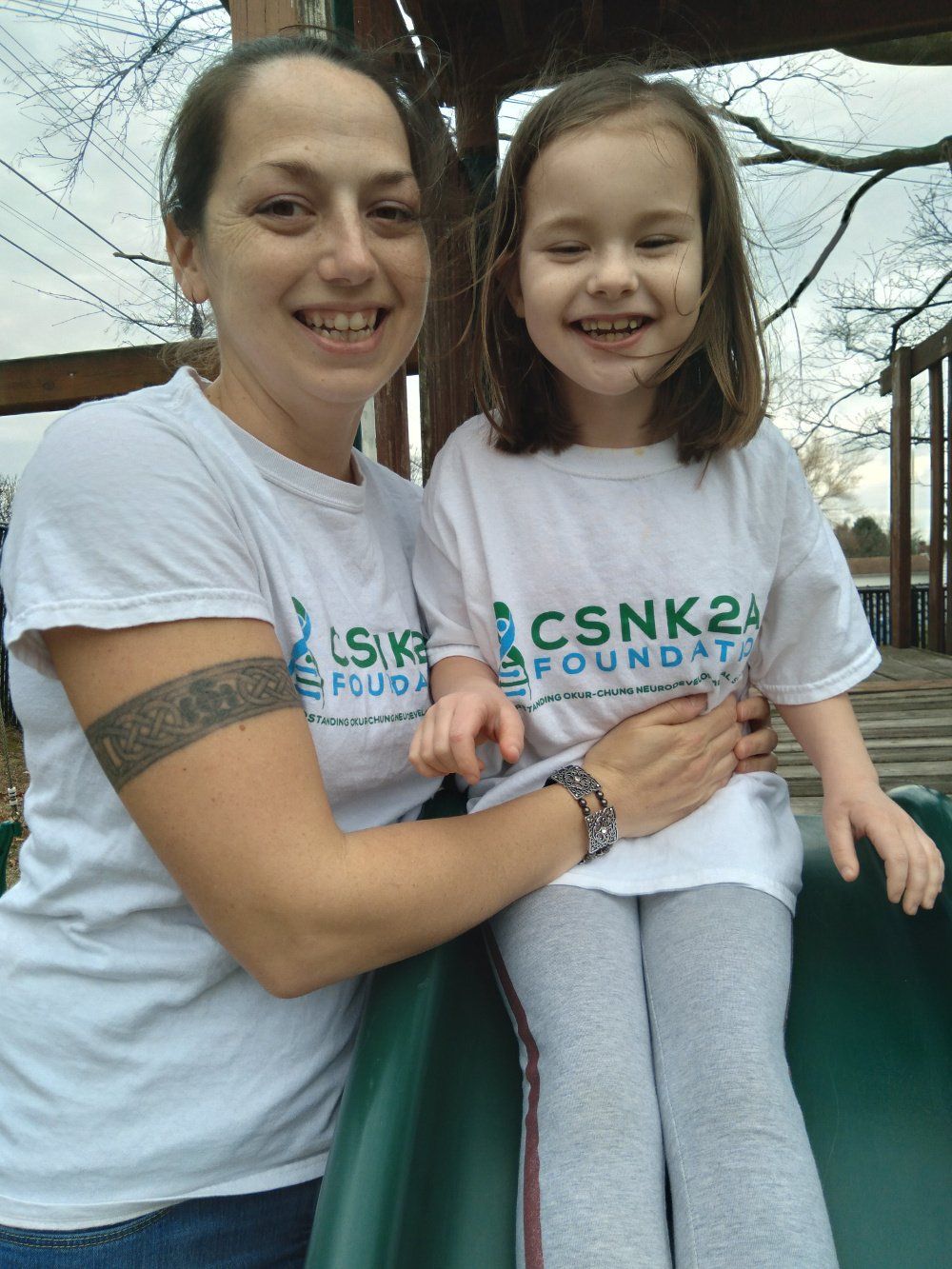Stand with My Family – Stand with Us

April 5th is International OCNDS awareness day . This was the date in 2016 where a name was given to the syndrome that affected our daughter and our lives. All of those memories and feelings came flooding back to me this last Friday when I received that dreaded phone call from the school nurse that our daughter was not feeling well and having some trouble.
Now it wasn’t anything crazy sounding on the phone, a nonevent really for a typical child. But with our daughter, something simple sounding, can have big consequential results. I finished up quick what I was doing and gathered my thoughts and fought the panic that was starting to well up inside. As I drove over, I realized why I could feel myself starting to get worked up inside, even though the issues today were hopefully really nothing major.
See, most parents don’t know the fear and terror of being handed a limp child when you arrive. Or being handed a child whose heart rate is way too fast, or whose extremities are ice cold as the body’s way of trying to save itself, or a child who has lost the ability to move extremities, or extremities that are locked in place, or are shaking uncontrollably. They do not know the look your child can have, that look of terror where they know nothing is going well, but they are powerless against it pleading for help. If she is even with it enough to have that look, and not the even more dreaded emptiness in the eyes when it is really bad. Most parents thankfully don’t know what it is like staying up all night to make sure your child is still breathing while monitoring their heart rate. Or even having to make that choice to even give rescue medications to stop a medical event. The ever-present parental terror that exists on a daily basis. Not knowing if today is going to be the day something catastrophic happens. Knowing that even when it is not catastrophic that day per say, but that every even a small event leaves behind a little more damage. So, living in a pseudo space of denial and enjoying the days that do exist in relative freedom. While denying that part and side of you that wants to worry and stress about it daily.
When I arrived at the school and she came out to me under her own power, I wanted to cry tears of joy: her walking towards me means she is at least halfway ok. Then she raised her arms up into my arms and started sobbing uncontrollably and thanking me for getting her. Now this child LOVES school and we are lucky that she is surrounded by the most caring team one could hope for. I know that while she is at school, she is safe and under the best care, and loves them all!
We get home after a quick drive and get settled into the house. I get her to finally eat some food and she starts to perk up. She is sad that she missed library at school, and wondering when her sibling will be home so she can give them hugs. She wants snuggles while I call into the Dr’s. She falls asleep curled up next to me. A little while later she pops out of a sound sleep to look at me and say “I love you so much Mom”, and then falls back asleep. Tears are in my eyes even now while typing this out. This amazing child who has the largest capacity to love everyone with her whole heart and being. I will fight night and day for her and all of those with OCNDS. They may all have their own struggles, or the same struggles. This is why it is so imperative that we show our support, raise awareness, and raise further funding for research. We need to find a cure, we need to help find their voice, and we all need to Stand With Us!
Please join us for International OCNDS Awareness day on April 5th! Please take a few minutes to like the CSNK2A1 Foundation Facebook page to keep up with everything. Share the posts anytime, but especially on April 5th! If you really wanted to show support, you can take a picture in green and or blue and post it in support on April 5th! Stand With Us!
